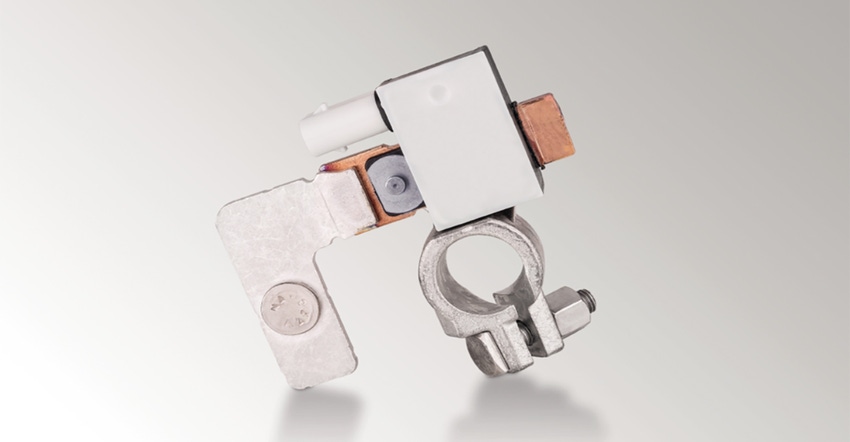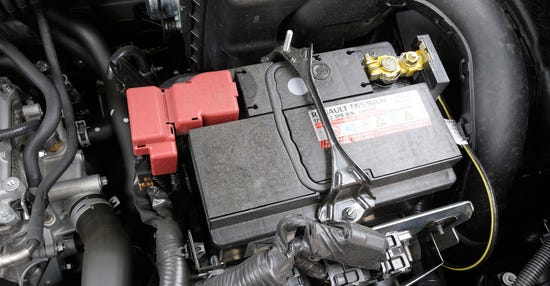From the definition to what the future market holds for intelligent battery sensors: Let’s review how they work and which applications are trending.

An Intelligent Battery Sensor (IBS) is a mechatronic component that monitors and measurers battery performance, also called a battery current sensor. An IBS provides reliable information on key battery parameters such as current, voltage, and even the battery’s temperature.
How it works
In modern cars, an IBS is usually placed directly onto the battery, and is connected to its negative terminal. An IBS measures parameters—current, voltage, and temperature—that are sent to the car’s Body Control Module (BCM) or to the car’s Powertrain Control Module (PCM) through communication protocols (e.g., Local Interconnect Network (LIN) or Controller Area Network (CAN) protocols).

The measured parameters are fed to different algorithms (depending on the software in use) to calculate the values of state-of-charge (SoC) and state-of-health (SoH) of the battery. Based on SoC and SoH values, charging system voltage for different components are adjusted. In other words, if the values of SoC or SoH indicates that the battery is getting weak, some electrical accessories of the car may be turned off (e.g., heated steering, navigation, or even the stop-and-start function) to save power.
Advantages
Weak batteries are one of the main reasons why cars break down and an IBS can offer many benefits such as:
Helping to extend life of a battery by avoiding deep discharge.
Helping to avoid vehicle breakdowns caused by early warning of battery breakdown.
Supporting voltage values ranging from 12V to 48V. Therefore, it can be deployed with any standard battery.
Supporting CO2 reduction measures by optimizing the alternator control system or stop/start function.
Beyond automotive applications
Nowadays, it is very common to find an IBS in automotive battery systems, but an IBS can thrive in many other applications that use electric motors that are also powered by batteries:
Uninterrupted power supplies (UPS): Traditionally the majority of UPS’s use a lead-acid battery for back-up power. This battery also needs to be monitored to assure that the latter will work when needed.
Golf carts, electric forklifts, and personal mobility vehicles: Users can know when to charge of replace a battery.
Emergency lighting and medical beds.
Solar Panels: Solar panels output maximum power at different currents and voltages depending on conditions affecting the panel, and an IBS can be used to monitor the current and voltage output of the panel.
The future of IBS
The growing demand for fuel-efficient vehicles that emit less pollution is creating opportunities for various automotive intelligent battery sensor technologies. According to “Research and Markets”, the global automotive intelligence battery sensor market size was estimated at $5,088.86 million in 2021, $5,642.72 million in 2022, and is projected to grow at a Compound Annual Growth Rate (CAGR) of 11.06% to reach $9,549.67 million by 2027.
About the Author(s)
You May Also Like





